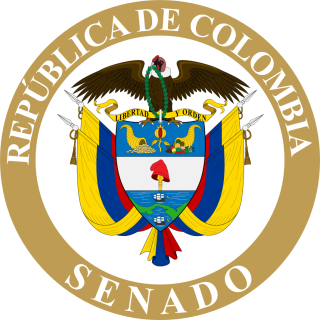
Romania's political framework is a semi-presidential representative democratic republic where the Prime Minister is the head of government and the President is the head of state. Executive power is exercised by the President of the republic and the government. Romania has a multi-party system, with legislative power vested in the government and the two chambers of Parliament: the Chamber of Deputies and the Senate. The judiciary is independent of the executive and the legislature. Until 1989, the communist rule political structure took place in the framework of a one-party socialist republic governed by the Romanian Communist Party as its only legal party.
By-elections, also spelled bye-elections, are used to fill elected offices that have become vacant between general elections.

The Authentic Radical Liberal Party is a centrist liberal political party in Paraguay. The party is a full member of Liberal International. The liberales, as they are known, are the leading opposition to the dominant conservative Colorado Party. They have taken this position since the end of the Alfredo Stroessner dictatorship in 1989. They are the political successors of the Liberal Party.
Regular elections in Croatia are mandated by the Constitution and legislation enacted by Parliament. The presidency, Parliament, county prefects and assemblies, city and town mayors, and city and municipal councils are all elective offices. Since 1990, five presidential elections have been held. During the same period, nine parliamentary elections were also held. In addition, there were six nationwide local elections. Croatia has held two elections to elect 11 members of the European Parliament following its accession to the EU on 1 July 2013.

The 1980 United States Senate elections coincided with Ronald Reagan's victory in the presidential election. Reagan's large margin of victory over incumbent Jimmy Carter pulled in many Democratic voters and gave a huge boost to Republican Senate candidates.
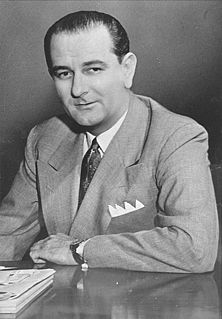
The 1956 United States Senate elections were elections for the United States Senate that coincided with the re-election of President Dwight D. Eisenhower. Although the Democrats gained two seats in regular elections, the Republicans gained back two seats in special elections, leaving the party balance of the chamber remained unchanged.
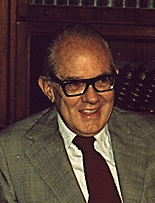
Alfonso López Michelsen is a Colombian politician and lawyer who served the 24th President of Colombia from 1974 to 1978. He was nicknamed "El Pollo", a popular Colombian idiom for people with precocious careers.
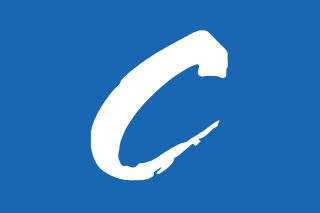
The Colombian Conservative Party is a conservative political party in Colombia. The party was formally established in 1849 by Mariano Ospina Rodríguez and José Eusebio Caro.

Radical Change is a political party in Colombia.
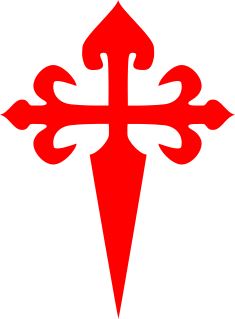
The Conservative Party of Chile was one of the principal Chilean political parties since its foundation in 1836 until 1948, when it broke apart. In 1953 it reformed as the United Conservative Party and in 1966 joined with the Liberal Party to form the National Party. The Conservative Party was a right-wing party, originally created to be the clericalist, pro-Catholic Church group.
The Democrats is a political party in Brazil. It was founded in 1985 under the name of Liberal Front Party from a dissidence of the defunct PDS, successor to the ARENA, the official party during the military dictatorship of 1964–1985. It changed to its current name in 2007. The original name reflected the party's support of free market policies, rather than the identification with international liberal parties. Instead, the party affiliated itself to the international federations of Christian democratic (CDI) and conservative parties (IDU). The Democrats' identification number is 25 and its colors are green, blue, and white.

General elections were held in Uruguay on 31 October 1999 alongside a double referendum, with a second round of the presidential election on 28 November. The elections were the first in Uruguay since World War I that were not dominated by the Colorado Party and the National Party. The Broad Front had begun gaining popularity in 1994, and had become key player in Uruguayan politics by 1999.
National Front was a period in the history of Colombia in which the two main political parties, the Liberal Party and the Conservative Party, agreed to rotate power, intercalating for a period of four presidential terms. The National Front Presidents were Alberto Lleras Camargo (Liberal), Guillermo León Valencia (Conservative), Carlos Lleras Restrepo (Liberal), and Misael Pastrana Borrero (Conservative).
Illinois is a Democratic stronghold in presidential elections and one of the three largest Democratic states in the nation alongside California and New York. It is one of the most Democratic states in the nation with all state executive offices and both state legislative branches held by Democrats. For most of its history, Illinois was widely considered to be a swing state, voting for the winner of all but two presidential elections in the 20th century. Political party strength in Illinois is highly dependent upon Cook County, and the state's reputation as a blue state rests upon the fact that the majority of its population and political power is concentrated in Chicago, Cook County, and the Chicago metropolitan area. Outside of Chicago, the suburban collar counties continue trending Democratic while downstate Illinois can be considered more conservative with some moderate regions.

The Czech Pirate Party or Pirates is a political party in the Czech Republic, founded in 2009. It is the third largest party in the Chamber of Deputies following the 2017 legislative election, with 22 out of 200 seats, entering the Chamber of Deputies for the first time since its formation. The parliamentary party sits in opposition to the ruling cabinet, and party leader Ivan Bartoš serves as the chairman of the Committee on Public Administration and Regional Development. The party is represented by three Members of the Senate of the Czech Republic, the most recently elected being Lukáš Wagenknecht in 2018. In same year, the party formed a governing coalition in the Prague City Assembly and Zdeněk Hřib became the current Mayor of Prague.

General elections were held in Mexico on 4 July 1976. José López Portillo was the only candidate in the presidential election, and was elected unopposed. In the Chamber of Deputies election, the Institutional Revolutionary Party won 195 of the 237 seats, as well as winning all 64 seats in the Senate election. Voter turnout was 64.6% in the Senate election and 62.0% in the Chamber election.
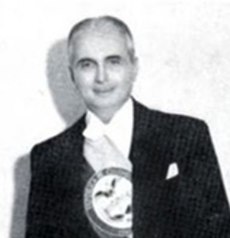
Presidential elections were held in Colombia on 5 May 1946, pitching the Colombian Conservative Party against two different Colombian Liberal Party candidates. The Liberals received more votes combined, but due to their division the result was a victory for Mariano Ospina Pérez of the Conservative Party, who received 41.4% of the vote. One of the Liberal candidates, Gabriel Turbay, was also supported by the Social Democratic Party.

The 1896 United States elections elected the 55th United States Congress. Republicans won control of the Presidency and maintained control of both houses of Congress. The election marked the end of the Third Party System and the start of the Fourth Party System, as Republicans would generally dominate politics until the 1930 elections. Political scientists such as V.O. Key, Jr. argue that this election was a realigning election, while James Reichley argues against this idea on the basis that the Republican victory in this election merely continued the party's post-Civil War dominance. The election took place in the aftermath of the Panic of 1893, and featured a fierce debate between advocates of bimetallism and supporters of the gold standard.

The Democratic Party was a political party in South Korea. The party was the first truly organized liberal opposition against Syngman Rhee's Liberal Party, and is considered as the predecessor to the lineage of the South Korean liberal parties.


